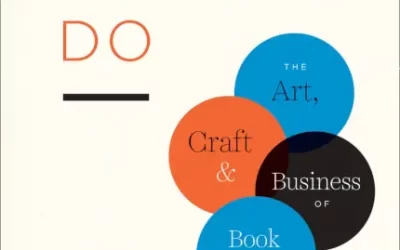“There is nothing to writing. All you do is sit down at a typewriter and bleed.” Ernest Hemingway might not have been in the clearest (or soberest) of mindsets when he said this, but any aspiring writer looking to sit down and compose their first book knows that writing can feel like war with all the bloodshed that comes with it. Ideas are great, but the devil is always in the details and the execution of said details.

Starting your great writing project is probably the hardest part for most authors (I said probably so don’t come for me in the comments). While an author might have an intense vocabulary, tremendous grammar, prose-writing ability that rivals Charles Dickens and Victor Hugo, and great hook of a story, it’s all moot if you can’t actually get it on the page. And sometimes even the best authors get wrapped up in their own heads and the writing just never comes to be. We’ve talked about this writing anxiety before in previous entries and some strategies for overcoming this especially in cases of rejection, but what is the best way to get started especially if you’re struggling to put pen to paper (or more likely fingers to keyboard)?
Here are a few tricks and strategies to help first-time authors start writing:
- Start with an outline. Anyone planning a road trip knows that it’s always good to map things out ahead of time. Writing isn’t much different. Drafting an outline including actions in a three-act structure can help you better organize your thoughts and plan out character arcs long before you start the actual writing. You don’t have all three acts planned out? That’s fine. At least write out a 1-2 paragraph synopsis of major events and story points so you can see if there is enough there for a full story and so you can see what needs to be better fleshed out during the development stage.
- It’s okay to start with just a title. I know we don’t want to judge a book by its cover, but a good title can make all the difference in a book’s success. Committing to a title at the start of your writing journey can guide your story effectively and help you to see the structure if you don’t have that outline yet, even if that title just ends up being a placeholder. If things aren’t working, you can always go back to the title and make changes. Changing your title doesn’t mean you’ve failed. As Thomas Edison once said, “I have not failed 10,000 times—I’ve successfully found 10,000 ways that will not work.” Use the same logic when writing.
- Start from the middle of your story if you must. We are conditioned to believe that the beginning of the book is the most important part of any story. The feeling is that you need to hook audiences with something dramatic within the first chapter or a book is going to be ignored by the public. This logic isn’t entirely incorrect, but when writing a book, no one said you have to know what that dramatic starting point is when you start writing. If you know what you want to happen in your middle chapters, start by writing your middle chapters. I’m not saying you have to structure your story like the movie Memento with everything out of sequence (although that is an excellent film), but there’s nothing wrong with starting from a point that isn’t the start of the novel and then going back in and filling in the blanks.
- Feel free to completely change things. While I know we suggested starting with an outline, it’s also perfectly okay to completely change the plot of your story once you start writing. Fun fact, I took a screenwriting class in college and started writing a melodrama set in high school, but after one day in working on an outline, it became a dark comedy because the drama just didn’t work and the characters became more suited to comedy. Never feel constrained by your original vision. Also, feel free to start with just a random sentence and completely make things up. In a creative writing class in college, we were all given a starting sentence and a time period and told to write a one-page piece of short fiction. The stories produced by the class were among the best flash fiction I’ve ever read. As Madeleine L’Engle once said, “You have to write the book that wants to be written.”
- It’s okay to write a horrible first draft. As we noted in other posts about writing, trying to achieve perfection right out of the gate is a recipe for failure on any writing project. It’s totally okay to write a first draft that is bereft of flowery language and details and is just the bare bones of your plot. It’s okay to leave out dialogue to start. It’s also okay to write something, go back and read it, and realize it is a failure. The beauty of writing a book on your own timeline is that you can go back and edit or rewrite any part of your writing whenever you want. Getting something down on the page is the most important thing when starting a writing project, especially if you are struggling with writing anxiety.
You can have the greatest idea in the world for a book, but if you can’t get started with it, no one is ever going to read it. You can start with a detailed outline broken down into three acts, you can start writing from the middle and then fill in the blanks, or just start with a first sentence and see where you go from there. The key is to write something. You can always go back and rewrite and edit. Are you a first-time author? Do you have any tips for authors trying to start their first book? Let us know in the comments below.
By: Chris Moffitt
Chris is a Managing Editor at Technica Editorial



